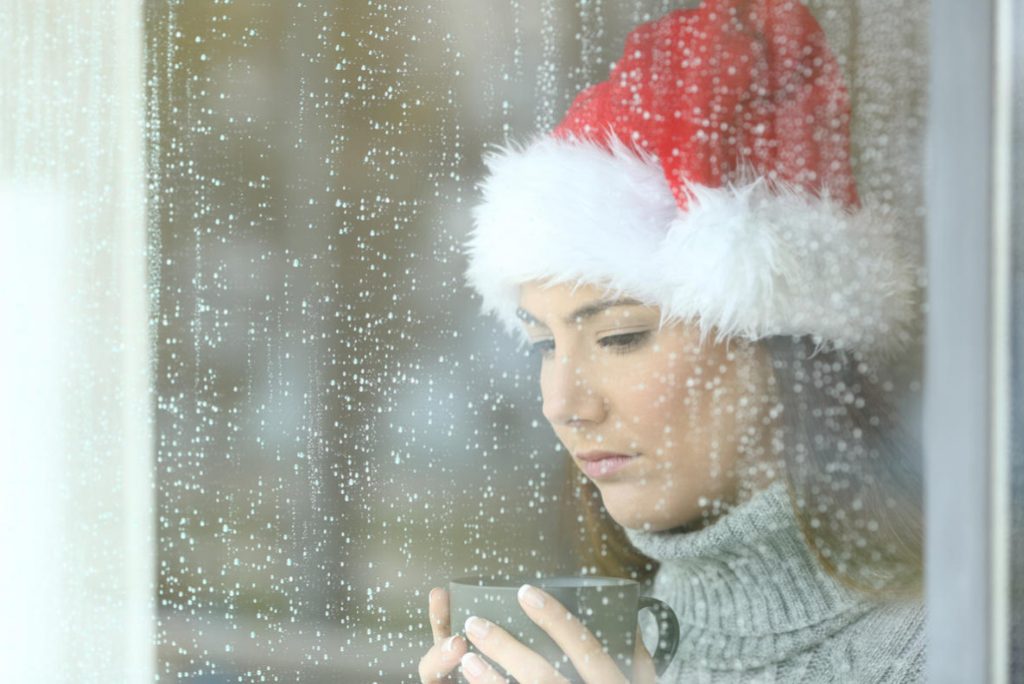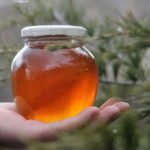I came home from work, ate, turned on the TV. At night-insomnia, in the morning-you can not get out of bed. Outside the window is December. Soon holidays, but they somehow do not please. No, it’s not laziness or fatigue. What then?
In winter, many feel tired, lethargic or upset. It’s time to recognize that sometimes our health and mood depends on the weather more than we think. There is even a special term for suppressed States that occur during a certain period of the year – seasonal affective disorder. And it is very important not to remain in such a “hibernation” for a long time. You need to be more attentive to yourself and others in time to notice the signs of impending problems.
Describing such a state, they often say: “I have depression.” However, it is not a fact that you have depression, sometimes just melancholy. Is there a difference? It turns out there is.
What kind of disorder?
Seasonal affective disorder is a depressive spectrum disorder that occurs at a specific time of year. A person in this state feels unwillingness to do anything, lethargy, emotional instability; his activity is noticeably reduced. But as soon as the season ends, there is a remission.
Seasonal disorders are divided into two types according to the seasons:
- Summer type
It starts in late spring and ends in autumn. A person loses weight, gets tired quickly, becomes irritable, suffers from insomnia. The summer form is less common than the winter form.
- Winter type
It starts in the fall and ends closer to summer. A person suffering from such a disorder feels a lack of vital energy, notes a decrease in attention, rapid fatigue, the desire for loneliness.

Why is this happening?
Why do I have seasonal affective disorder? Experts have several hypotheses about this:
- the disorder is associated with a violation of the internal rhythms of the body, failures in the “internal clock”;
- reducing the day in winter leads to a decrease in serotonin production in the body, and its insufficiency – to depression; in addition, a seasonal decrease in the diet of vegetables and fruits causes a lack of vitamins, which, in turn, provokes a weakening of the body as a whole and the nervous system in particular;
- seasonal affective depression – perhaps just “hibernation”, a natural decrease in activity during the cold season;
- it is possible that the cause of seasonal disorders are climatic phenomena-changes in temperature, atmospheric pressure.

Who is at risk?
Here are the factors that increase a person’s chances of experiencing seasonal affective disorder:
- gender: women suffer from seasonal depression four times more often than men;
- anamnesis: those who have already had similar disorders and depression should be more attentive to their condition;
- genetics: genetic predisposition to such disorders can also play a role; the risk is increased if one of the relatives suffers from depressive disorders;
- geography: if a person lives in an area where there is little daylight during the cold season, the likelihood of seasonal melancholy or depression also increases.
A little more about depression
Depression is one of the most common mental illnesses. According to the world health organization, the overall prevalence of depressive disorder is on average 5% of the population; 18-25% of women and 8-11% of men at least once in their lives encounter this disease. Sometimes it can occur as a side effect of taking medications.
The disease is usually manifested by reduced mood, motor and mental retardation, sleep disorder. Often the patient feels indifference to life or unwillingness to live — and this is the most difficult, dangerous side of the disease, which should not be forgotten. You need to understand that depression is not a whim, not a manifestation of laziness or weakness of character, it is a medical diagnosis, and in severe disease can be life-threatening.

Doctors distinguish between simple and complex depressions. Complex disorders are accompanied by delusions, hallucinations, disorders in the motor sphere. Simple depressions are expressed in melancholy, apathy, lethargy, fatigue; depressed mood, not due to objective reasons; loss of interest in any activity; insomnia, irritability; guilt or a sense of their own uselessness, etc. the human Body also reacts to this disorder: the patient may look tired, note brittle nails, hair loss, feel a slow pulse; women complain about the violation of the menstrual cycle.
Not every bad mood or sadness is depression. But if you are concerned for more than two weeks at least some of these symptoms — be sure to contact your doctor.
How do you know where depression is and where stress is?
The word “depression” is not a synonym for stress or melancholy. Stress is a protective reaction of the body, and a person can often cope with it on their own, sometimes you need the help of a psychologist. With depression, you need a doctor-without qualified help to get out of this state is problematic.

Stress can be different in severity, which largely depends on the cause of it — from the death of relatives, divorce, dismissal from work and ending with minor troubles. The source of stress is often common everyday situations, for example, a child has changed school, an adult has retired. At the same time, the reaction of the psyche to changes may vary depending on the individual qualities of the person: the level of anxiety, Constitution and temperament, previously suffered stress, psychological stability and General health.
Stress can trigger depression, but it’s not necessary. In order to respond correctly and take adequate measures, it is important to learn to distinguish between disease (depression) and the state of a person during periods of difficulties and changes (stress).
If I have a seasonal disorder, how can I treat it?
See a specialist. Affective seasonal disorders are considered an indication for prescribing medication, but treatment of summer and winter disorders may be different. In addition, medications are not the only way out of the situation.

To cure depression, the approach must be comprehensive and combine doctor-prescribed therapy (including medication), psychological treatment, and self-help. Self-help means meditation, diet, exercise, creativity, and so on.
A number of studies have noted the effectiveness of natural methods and natural drugs in the treatment of seasonal affective disorder. But self-medication for depression is definitely not necessary.
If a loved one suffers from seasonal disorder
If a loved one is suffering from seasonal affective disorder, treat their condition with understanding and respect. Avoid phrases like “you’re just too lazy”, “you just need to overcome yourself, and everything will get better”, “it’s just sad” — and so on. The patient is clearly aware of what is happening to him, and if the disease could be reduced to simple laziness, he would correct the situation.

Let the other person Express their feelings and support them-trusting communication will help much more than notation. Talk about the disease should be constructive and delicate, avoiding condemnation or teachings. Try to convince the person that he needs full-fledged therapy; an additional day off or vacation, and even more so a passion for alcohol and tobacco will not cure the disease.
Melancholy — not yet depression, but measures need to be taken
If with the onset of cold weather you often spoil the mood and the desire to do something disappears, you should not leave your condition without attention. Even if you are just sad and you are not talking about depression, you should not dismiss the problem.
Try to adjust your mode: choose the optimal time to go to bed and Wake up. It is advisable to get up every day at the same time, even on weekends.

No one has canceled a healthy and balanced diet: eat fruits, vegetables, seafood, as in the autumn and winter the body lacks vitamins. Lifestyle plays an important role. In winter, when there is a lack of sunlight, use any opportunity to walk during the day. On weekends, you can do outdoor activities — go skiing, go to the forest and just move more. Often these simple measures are enough to normalize the state.
How do you feel in the cold season? Do you know the seasonal melancholy? How do you fight it? Share your opinion about this problem in the comments.


















